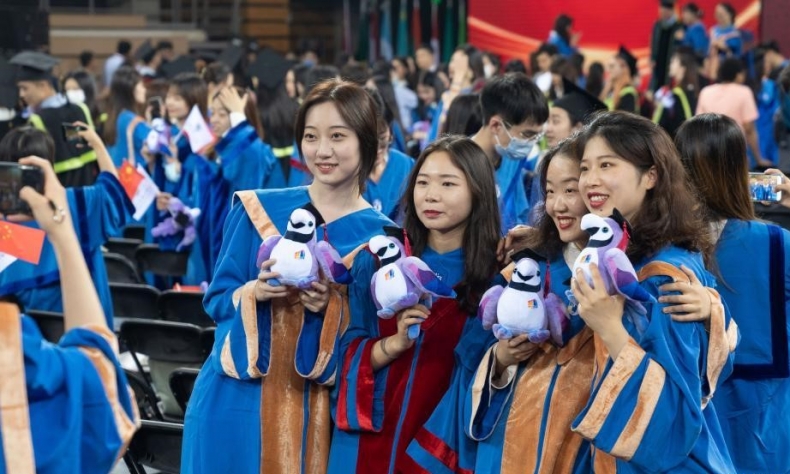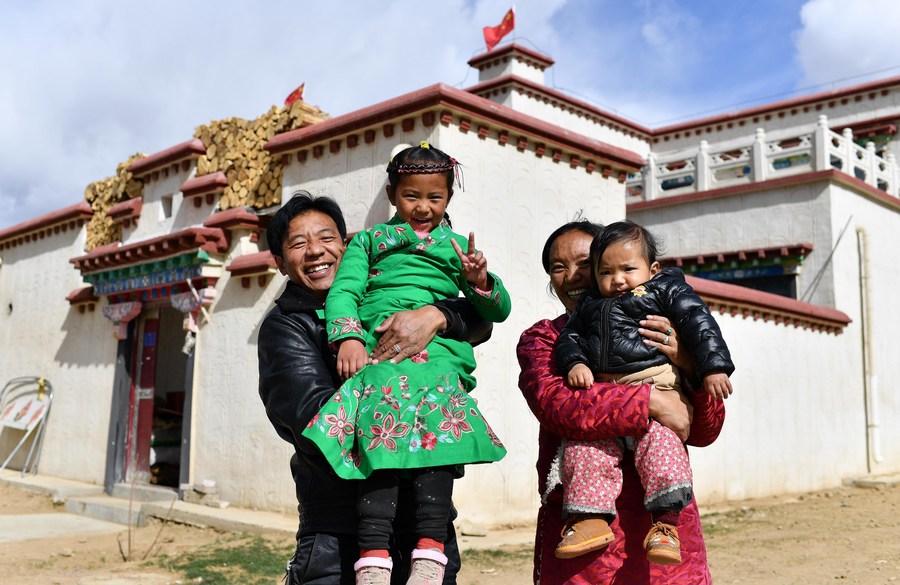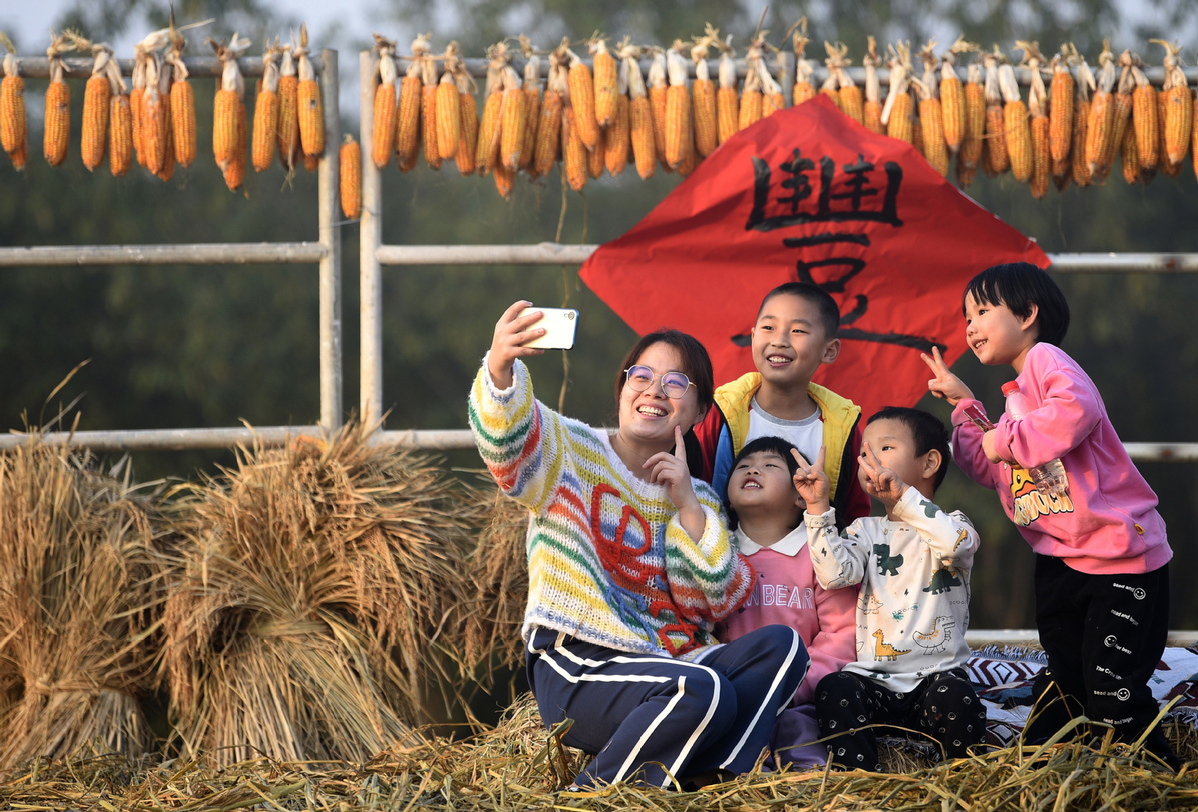People First in the New Era: Promoting Human Rights with China’s Modernization

China’s people-first modernization approach may provide inspiration to people around the world for the all-round realization and promotion of human rights in the New Era.
Xi Jinping, general secretary of the Communist Party of China (CPC) Central Committee, delivered a report to the 20th National Congress of the CPC on October 16. The Report reaffirms that the very basic theoretical requirement of Socialism with Chinese Characteristics is to “put the people first”. Such a people-centered approach, the Report adds, is necessary for substantively promoting human rights within the process of China’s modernization in the New Era.
In 1948, the adoption of the Universal Declaration of Human Rights declared the faith of the UN member states “in fundamental human rights, in the dignity and worth of the human person and in the equal rights of men and women” and the determination “to promote social progress and better standards of life in larger freedom”. However, more than seventy years later, many people in the world are still suffering from harsh living conditions, extreme poverty, lack of opportunity, and even an unstable and insecure society.
History has thus taught us that the global promise of human rights cannot be realized without industrialization for the least developed and developing countries, as well as a recognition of the existing imbalances between economies and societies.

As the driving force behind China’s development, the CPC has successfully fulfilled its commitments to human rights by putting the people-first approach to modernization into action. People-centeredness originates from the basic principles of Marxism. As reflected in the Report, the CPC is acutely aware that its guiding theories shall be from the people, for the people and beneficial to the people. Indeed, people’s creative practices are the inexhaustible source of theoretical innovation; theories that are detached from the people will be feeble and ineffective; and theories that cannot deliver for the people will be stale and lifeless.
The people-first approach cherishes people’s inherent right to life. To underscore this point, no example is more telling than China’s policy decisions taken in response to the Covid-19 pandemic. The CPC placed the people and their lives above all else by tenaciously pursuing a dynamic zero-Covid policy, which protected the people’s health and safety to the greatest extent possible and made tremendously encouraging achievements in both epidemic response and economic and social development. In the Report, the CPC promises to further improve the social security system in a fair, unified, reliable, well-regulated, and sustainable way that covers the entire population in urban and rural areas. Further, the people’s health is given priority within the promotion of public health policies. The right to survive and the right to health, whether belonging to the rich or the poor, should be the most fundamental and are the premise of the other human rights.
The people-first approach focuses on people’s legitimate right to development. Indeed, development is the CPC’s top priority, because, without solid material foundations, a developing country cannot hope to realize modernization in any major respect, especially in regard to the promotion of people’s dignity and freedom. Through persistent hard work, China has eradicated absolute poverty, achieved moderate prosperity and become the largest contributor to world economic growth. During this process, the CPC has implemented a people-centered development philosophy and worked tirelessly to ensure people’s needs are met. Specifically, the policies, including, greater access to childcare, education, employment, medical services, elderly care, housing and social assistance, has brought about an all-around improvement in people’s lives.

That said, as in many countries, imbalances and inadequacies remain a prominent challenge in China’s ongoing development. According to the Report, in order to protect the people’s fundamental interests and improve their well-being, the CPC will continue to adhere to the philosophy of people-centered development and make greater efforts to ensure that the gains of modernization benefit all the people fairly. Significantly, this will be achieved through the implantation of an “employment-first” strategy along with making improvements to the system of income distribution.
The people-first approach also strengthens the right to democracy and the rule of law which, the CPC believes, are integral for building a modern socialist country in all respects. To this end, it has developed the whole-process people’s democracy comprehensively. In the New Era, the CPC promises to keep improving the institutions, standards, and procedures of the socialist democracy and advancing socialist consultative democracy by way of extensive participation.
The Report further underscores that a cordial and clean relationship between government and business shall be cultivated while the healthy development of the non-public sector and those working in it shall be facilitated, typically reflecting how the people’s democracy ensures the benefits of modernization will be shared properly and fairly among different social classes.
The Report emphasizes that the well-being of people will benefit from strengthening the rule of law. To this end, the CPC has pledged to intensify efforts to advance socialist rule of law in China and mapped a comprehensive framework for law-based governance. It reaffirms the CPC’s determination to build a modern country under the rule of law in all respects, with a focus on protecting and promoting social fairness and justice, ensuring the people’s expectations and delivering long-term benefits.

As the Report notes, the CPC has waged an unprecedented battle against corruption. In an effort to eradicate both the symptoms and root causes of corruption, it declares that CPC will advance national anti-corruption legislation and promote a culture of integrity in the New Era. To this end, the CPC promises to “offend a few thousand rather than fail 1.4 billion” and ensure that the power granted to it by the people is always exercised in the interests of the people. Based on this people-first approach, the people’s democracy and rule of law serve as effective tools for modernization that benefit all.
For China, the Report ultimately serves as a roadmap for ultimately achieving socialist modernization, guaranteeing common prosperity for all, ensuring material and cultural-ethical advancement, delivering harmony between humanity and nature, and promoting peaceful development.
It is important to note that China’s modernization is largely driven by the country’s unique conditions and developmental stage. That said, it also contains elements common to the modernization process of both developed and developing countries. In this sense, China’s people-first modernization approach may provide inspiration to people around the world for the all-round realization and promotion of human rights in the New Era.
Dr. Zhang Tong is a researcher of the Institute for International Strategic Studies under Party School of the Central Committee of CPC (National Academy of Governance).
Copyedited by Jamie Wright
 Facebook
Facebook
 Twitter
Twitter
 Linkedin
Linkedin
 Google +
Google +










